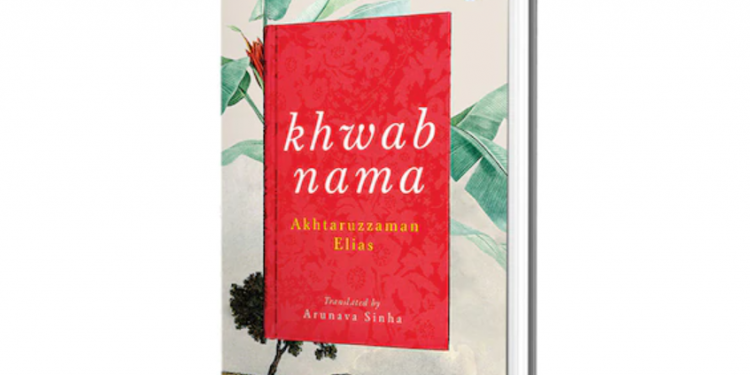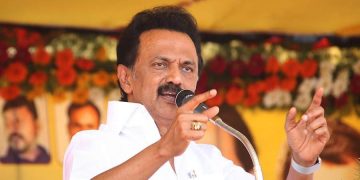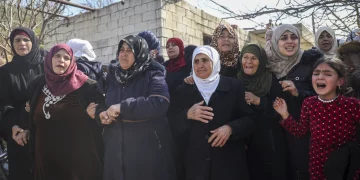The best of literature is often hidden away in regional languages. It is by sheer luck that sometimes we get a glimpse into a hitherto unexplored territory, thanks to the hard work of translators in making it accessible. Widely considered to be the best novel to have come out of Bangladesh, Akhtaruzzaman Elias’ epic “Khwabnama” is a radical feat. Though Elias is relatively unheard of outside Bengal, his talents were rightly appreciated by the legendary writer Mahasweta Devi, who once remarked that she’d consider herself blessed if she achieves a fraction of Elias’ quality in her writings.
Khwabnama is an intensely political novel yet it concerns itself less with a cry for revolution or great men and more with the lives of the subaltern. In most critical assessments of Elias’ work, there is a tendency by critics to analyse it through a Marxist lens owing to his explicit progressive inclinations. While this is helpful, it is insufficient. Khwabnama chronicles the lives of peasants during a time of turbulent political atmosphere but the central political movement in the book is the agitation for Pakistan. The Tebhaga movement, on the other hand, is always lurking in background. The absence of its presence i.e. its trace (only partly in the Derridean sense) is strongly felt consciously. A better way to read this text politically, then, is as an examination of what went wrong.
For Elias, the human element takes precedence.
He does not merely detail the hardships that the peasants go through. On the other hand, we are given a complete and exquisitely detailed portrait of life in rural pre-partition Bengal. Elias was certainly acquainted with cosmopolitanism and his stream-of-consciousness writing style along with the somewhat non-linear narrative shows the influence of writers like Borges and Gunter Grass. Yet, his magical realism is distinctively original. We come across wandering fakirs singing songs (puthishlokas), interpreting dreams and ghosts of ancestors interacting with their relatives. Urban legends of the real-life anti-colonial figure Bhabani Pathak and his general Munshi remain alive and occupy a crucial role throughout the book and the lives of the characters. Unlike many classic works of magical realism, there is no division between the real world and the world of dreams. Neither is there any element of revelation or surprise. This is an ingenious way of transporting the reader into the lives of villagers in pre-partition Bengal as the element of “magical realism” is merely the normality of the natives. In crafting this tale, Elias has created a form of indigenous magical realism that cosmopolitan greats like Rushdie could never write.
It is easy to dismiss and critique partition and the demand for Pakistan. Elias, who was staunchly critical of both, seeks to understand its appeal. The protagonist of the novel, Tamiz, is initially uninterested and indifferent towards the demand of Pakistan. As the story progresses, we come across the complex intersection of caste and class among both Hindus and Muslims.
The compounder Prashanto refuses to consume anything at the house of the Muslim League member Abdul Kader for fear of losing caste. Similarly, the marriage between the oil presser Goffur and a woman belonging to the fisherman’s caste creates outrage and ostracism. Even Boikonthu, a poor servant working for the affluent Mukunda Saha, insists on consuming mango to quench his thirst instead of water at Fakir Cherag Ali’s house. In a society rife with such division, the appeal of a casteless Muslim nation appears obvious. The Muslim League politicians seek to utilise religious unity and promise the dream of abolishing the Zamindari system to the poor peasants. It is this dream which leads Tamiz to become an advocate for Pakistan.
The appropriation of the Tebhaga movement by the Muslim League can be accurately described as an instance of “false consciousness.” That communal unity is steeped in tradition is made clear by the songs of Keramat Ali and the devotion of Boikonthu towards the legend of the Hindu Bhabani Pathak fighting alongside his Pathan general Munshi against the British. The advent of Pakistan sharpens communal divide to an ugly extent. The affluent Hindus like Mukunda Saha leave for India and are merely replaced by affluent Muslim oppressors. All talk of implementing Tebhaga vanishes.
The marginalised and poor Boikonthu, adored and loved by his Muslim counterparts, is brutally murdered shortly after his religious practices are publicly mocked with communal bile in a humiliating manner by the well-off Kalam Majhi. What starts of as a book of dreams becomes a story of broken dreams and cruel tragedy.
Given the complexity and length of the novel, the master translator Prof. Arunava Sinha deserves the highest praise for this impeccable translation. Sinha manages to retain the smells, sights, beauty, ugliness and idiosyncrasies of Bengal for the English reader. Hopefully, Elias will now be given his rightful place among the greatest contemporary writers of not just the subcontinent but of the world at large.
The writer is an author, blogger and a student at Jindal School of International Affairs.






































